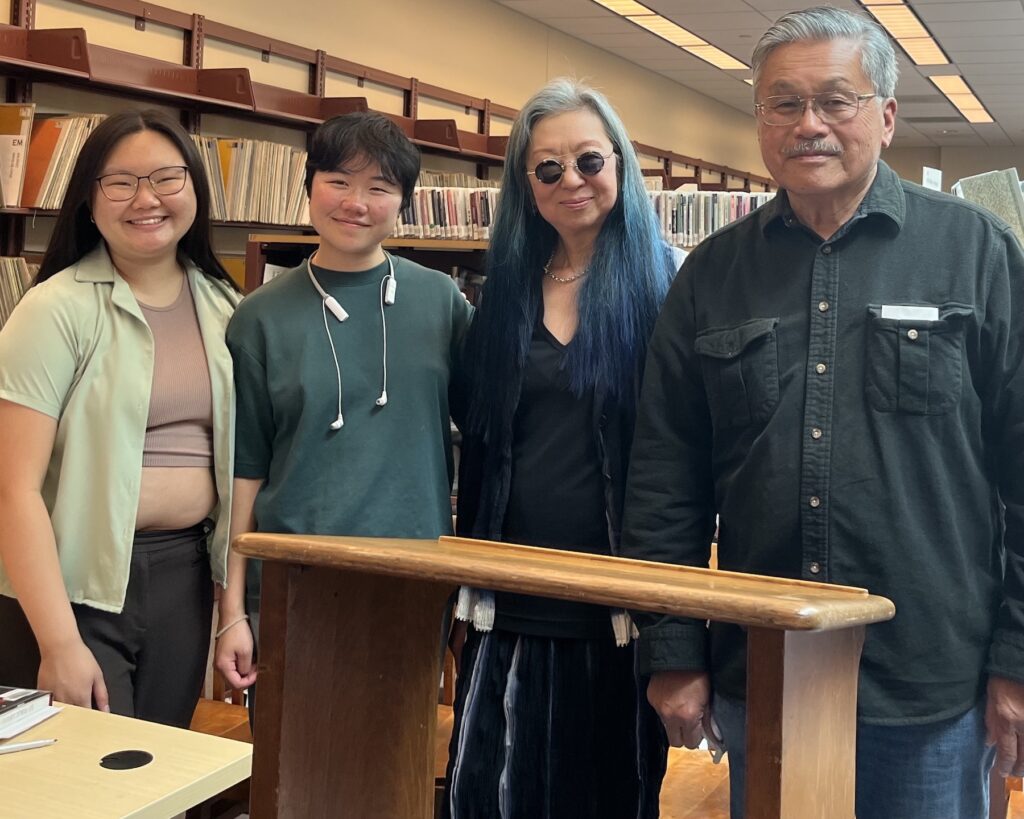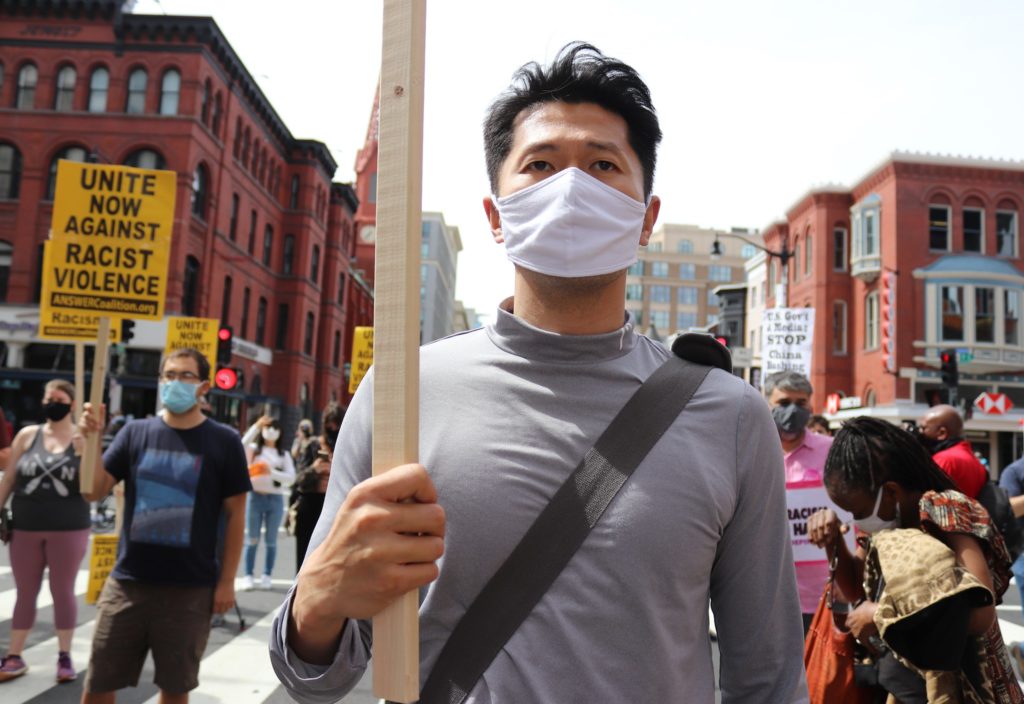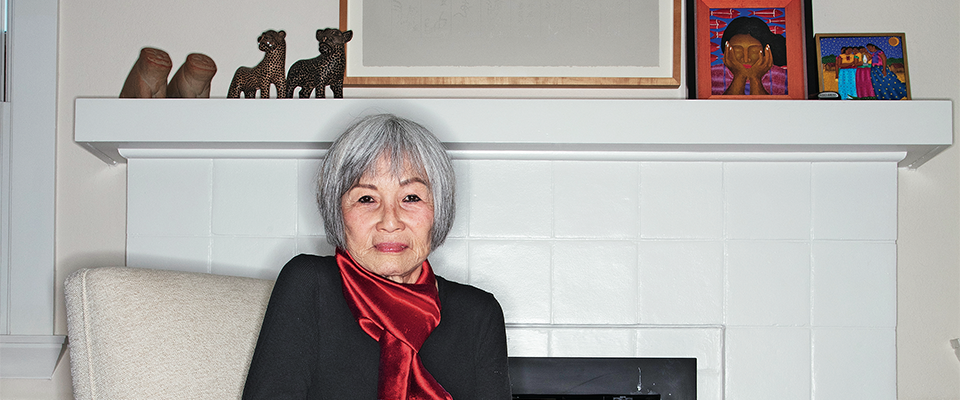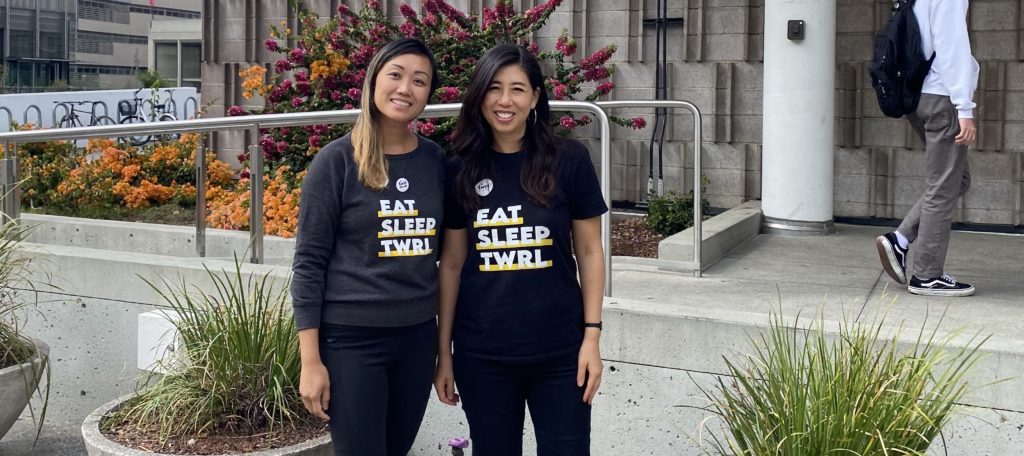Eastwind Books of Berkeley, which Beatrice and Harvey Dong took over in 1996 and ran until it closed at the end of April, had a mission to create a community.
They did that by filling the store with things people couldn’t find anywhere else: contemporary Asian American fiction, as well as books on history, marital arts, and traditional Chinese Medicine. Eastwind published books that no one else did, such as an archival history of the Asian American movement, and The Forbidden Book: The Philippine American War in Political Cartoons. With panels and discussions on subjects like elder care, immigrant rights, and the environment, the store became a gathering place for many in the community to get information and make connections.
During the ’60s and ’70s, The Dongs had been heavily involved in community organizing and labor and housing issues, including the 1977 historical fight against demolishing San Francisco’s International Hotel, a symbol of the Filipino American struggle for identity. When the Dongs heard Eastwind was going to close, they decided running it could fit with their social justice advocacy.
Beatrice Dong was returning to school to finish her bachelor’s degree in ethnic studies, Harvey Dong said, and she wanted to run a bookstore. He thought it could be a way to keep working with activists, such as poet Al Robles who’d also been a part of the fight for the I-Hotel.
“We connected with people that we knew from earlier periods who became writers and poets,” Dong said. “And there were new generations of people who wanted to learn about that past.”
Dong, who got his doctorate at UC Berkeley in Ethnic Studies and became a professor in Asian American and Asian Diaspora Studies at Berkeley, says both Asian Americans and those from different cultures have told him how coming to the store and learning about Asian American history and culture shifted their perspective.
New Yorker writer and UC Berkeley grad Hua Hsu, author of the recent Pulitzer Prize-winning memoir, Stay True, went to Eastwind with his parents growing up, and developed his own relationship with the store as a student at Berkeley.
“It felt an embodiment of the ideals of community that I was studying in class. I remember feeling a sense of thrill that there were so many more authors, ideas, titles to discover,” he wrote in an email. “I’ve found a lot of things there that I never knew existed, particularly independently published books about the Asian American movement and music.”
The Dongs, in their 70s and looking after elderly parents, decided after 27 years to let the store go when the lease was up in April. They had survived many challenges, including the financial crisis, gentrification, and rent increases.
“It just became a little bit too much. We decided to kind of step down,” Harvey Dong said. “At the same time, you miss the customers and the connections. We hope to maintain that in other ways.”
They’re already doing so by selling books online, continuing to publish, and holding events.
The first event after the store closed was at the Berkeley Public Library and featured Dong and author and fellow UC Berkeley professor, Fae Myenne Ng, in discussion about Ng’s new memoir, Orphan Bachelors.
The book deals with two policies that had a big impact on Ng’s family — the 1882 Chinese Exclusion Act, which banned Chinese people from immigrating to the US, and the Chinese Confession Act, which encouraged those who came illegally to confess, with the (unreliable) promise of citizenship. Part of Eastwind’s importance is giving a platform to the conversations like the one between Ng and Dong, Hsu thinks.
“Fae is such a terrific writer, drawing on history but not completely beholden to it,” he wrote. “Orphan Bachelors contains so many important stories drawn from Chinese immigrant history, but they’re assembled with a soulful playfulness, a self-consciousness that reminds you of the textures and confusions of the past.”
This subject is personal for Ng — and for Dong as well.
“As a result of the Chinese Exclusion law, the older generation in San Francisco’s Chinatown was spending time sitting outside at Portsmouth square talking and being mad, and she had to give voice to it,” Dong said. “I had uncles and relatives who also lived that experience and were never given a voice.”
Ng said, “We’re two Chinatown kids who grew up with the Exclusion and the Confession program and got a complete view of what these two policies have done to the Chinese American community. My father was always saying Exclusion was a brilliant piece of legislation because it was bloodless. You didn’t have to kill any Chinese babies — you just made sure none were born.”
Ng calls Dong a legend and says they often send students to one another, with Dong teaching the facts of Asian American history and her teaching how to turn it into fiction.

“They take Harvey’s class and really get a sense of the truth of our country,” she said. “What has happened in this country, it’s all news to them, and they leave his class understanding the basics and appreciating what the previous generation fought for. Then they come into my class, and I don’t have to do that work. I say, ‘You took Harvey’s class, you know all this. Now let’s imagine recasting all this in our own voices.’ So, we just have fun. He does the hard work.”
One of these students is Jaide Lin, who graduated from Berkeley this semester.
Lin took classes with both Dong and Ng. At the end of Ng’s first creative writing class, the whole class walked down to Eastwind.
“She said, ‘Okay, all of you are going to go down to the bookstore, and you’re going to purchase this book — you will not humiliate me by buying this from Amazon,’” Lin said. “And we all took a little field trip down to Eastwind in downtown Berkeley after the class had ended. It was very, very, very fun.”
Lin hopes to recreate the store. And they’re not alone.
“I want to open a radical bookstore eventually,” Lin said. “And one of my classmates, Anita, is also trying to bring the Asian American voice to Copenhagen.”
Eastwind was a unique store, Ng said, from the selection of books to how it was set up. That’s what inspired students like Lin.
“These are really smart kids, and they have ideas, and they’re not apologetic,” Ng said about her students. “They are taking the mantle of Harvey’s and my generation and their parents’ generation, and the work they’ve done, and they’re going to take it to a new level.”





















